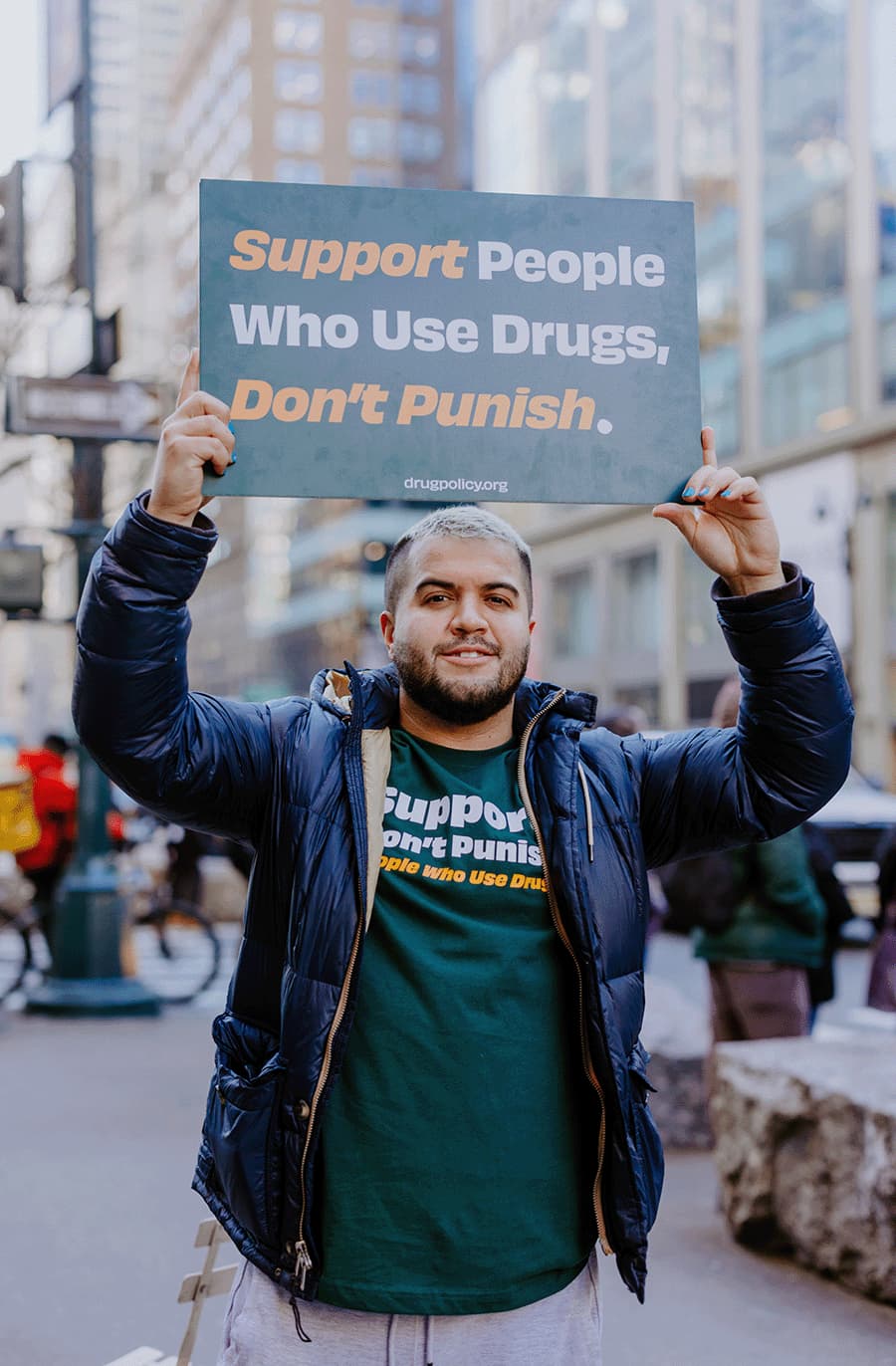
Roseanne Scotti at (609) 610-8243 or Tony Newman at (646) 335-5384
Trenton–Citing a public health emergency created by the spread of HIV/AIDS Governor James E. McGreevey today signed an executive order allowing municipalities affected with high HIV/AIDS rates to establish sterile syringe access programs. After years of debate and advocacy, the order will allow designated cities in New Jersey to establish syringe exchange programs for the first time in New Jersey’s history.
The Governor moved forward with the executive order after legislation that would have allowed for the sale of syringes in pharmacies without a prescription and the establishment of syringe access programs by municipalities stalled two weeks ago in the Senate Health, Human Services and Senior Services Committee after passing in the Assembly the week before.
“The Governor is to be commended for taking action to protect the public health of the people of New Jersey,” said Roseanne Scotti, director of Drug Policy Alliance New Jersey, the group that has spearheaded the drive for sterile syringe access. “People have been dying while this issue has been held hostage by a few vocal but misguided opponents.”
When earlier state legislation to increase access to sterile syringes stalled last November, two cities, Atlantic City and Camden, took matters into their own hands by passing ordinances establishing syringe access programs. City officials were motivated by the high rates of HIV in their cities, particularly among communities of color. In Atlantic City, 1 in 32 African Americans is infected with HIV and 1 in 102 in Camden. The Atlantic City program was challenged by the county prosecutor and a trial court judge ruled in September that the cities did not have the legal authority to establish such programs without state approval. The decision is being appealed.
New Jersey is facing a public health crisis due to the spread of HIV/AIDS and hepatitis C.
Despite these statistics New Jersey is almost alone among states in allowing no access whatsoever to sterile syringes to prevent the spread of diseases. Forty-six other states allow pharmacy sales of syringes without prescriptions, and about 33 states also have syringe exchange programs. Only two states, New Jersey and Delaware, offer neither option to prevent the spread of disease.
Every scientific and medical group to study the issue has concluded that sterile syringe access reduces the spread of HIV and hepatitis C and does not increase drug use. Syringe exchange programs have been shown to act as a bridge to drug treatment and other social services for drug users. “These programs impact the hardest-to reach and most at-risk populations and offer them the help they need,” said Roseanne Scotti. “Now thanks to the Governor, cities like Atlantic City and Camden will be able to reduce the epidemic levels of deadly disease in their communities.” In New York City after exchange programs were instituted, the HIV rate among injection drug users dropped from about 50 percent to about 15 percent.
The movement for increased access to sterile syringes began in the late 1990s when the late Senator Winona Lipman introduced two bills that would have allowed for non-prescription sale of syringes and the establishment of syringe exchange programs. Similar bills have been introduced over the years, but despite strong support from the public health and medical community the legislation never made it out of committee. Two years ago, a coalition of individuals and organizations, the Campaign for a Healthier New Jersey, was formed to support legislation to remove the legal barriers to sterile syringes in the state. Legislation supported by the Coalition was tabled last November, but new legislation was introduced in September in the wake of the actions by Atlantic City and Camden. That legislation stalled in the Senate Health, Human Services and Senior Services Committee on October 14 after passing in the Assembly the week before.

Your $1 becomes $2 to power the urgent fight to end marijuana prohibition and repair the harms of the drug war. Don’t miss your chance to fight for justice!
